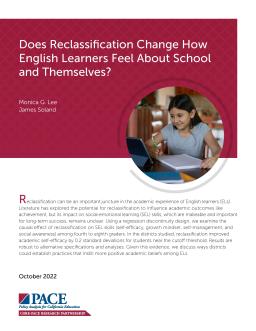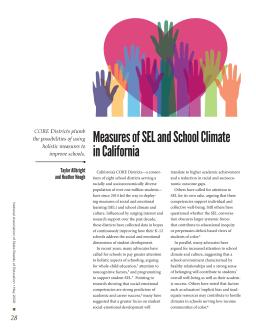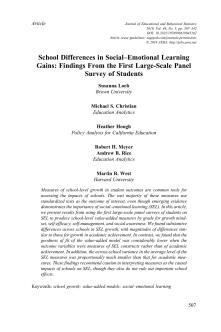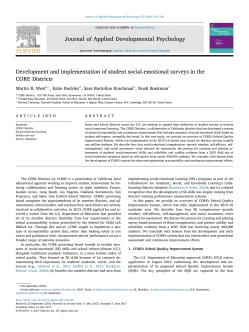Published
Summary
This study explores the impact of reclassification on social-emotional learning skills (SEL) of English learners (ELs) in grades 4 to 8. Using a regression discontinuity design, the study found that reclassification improved academic self-efficacy by 0.2 standard deviations for students near the cutoff threshold. The results suggest that reclassification can positively influence the academic beliefs of ELs and the authors provide recommendations for districts to create practices that foster such positive beliefs.
Published
Summary
California's CORE districts have been collecting data since 2014 on social and emotional learning (SEL) and school climate and culture to improve K-12 schools' holistic approach to student development. Advocates argue that a focus on SEL and school culture will lead to higher academic achievement and better well-being for students. The CORE districts developed survey instruments for SEL competencies and school climate perceptions involving students, staff, and parents. Many states and districts have adopted SEL-specific curricula and disciplinary reforms.
Findings From the First Large-Scale Panel Survey of Students
Published
Summary
This article discusses the use of standardized tests as the primary tool for assessing school-level growth in student outcomes, despite the emerging importance of social-emotional learning (SEL). It presents results from large-scale surveys of students on SEL constructs, and finds significant differences across schools in SEL growth, with magnitudes of differences similar to those for academic achievement. However, caution is recommended in interpreting measures as causal impacts of schools on SEL, as the goodness of fit of the value-added model was considerably lower for SEL measures.
Published
Summary
States and school districts across the U.S. are seeking to expand their definition of student success to include social-emotional learning. The CORE Districts, a collaborative of California districts that has developed a system of school accountability and continuous improvement that includes measures of social-emotional skills based on student self-reports, exemplify this trend. In this case study, we provide an overview of CORE's School Quality Improvement System, which was implemented in the 2015–16 school year across six districts serving roughly one million students.



